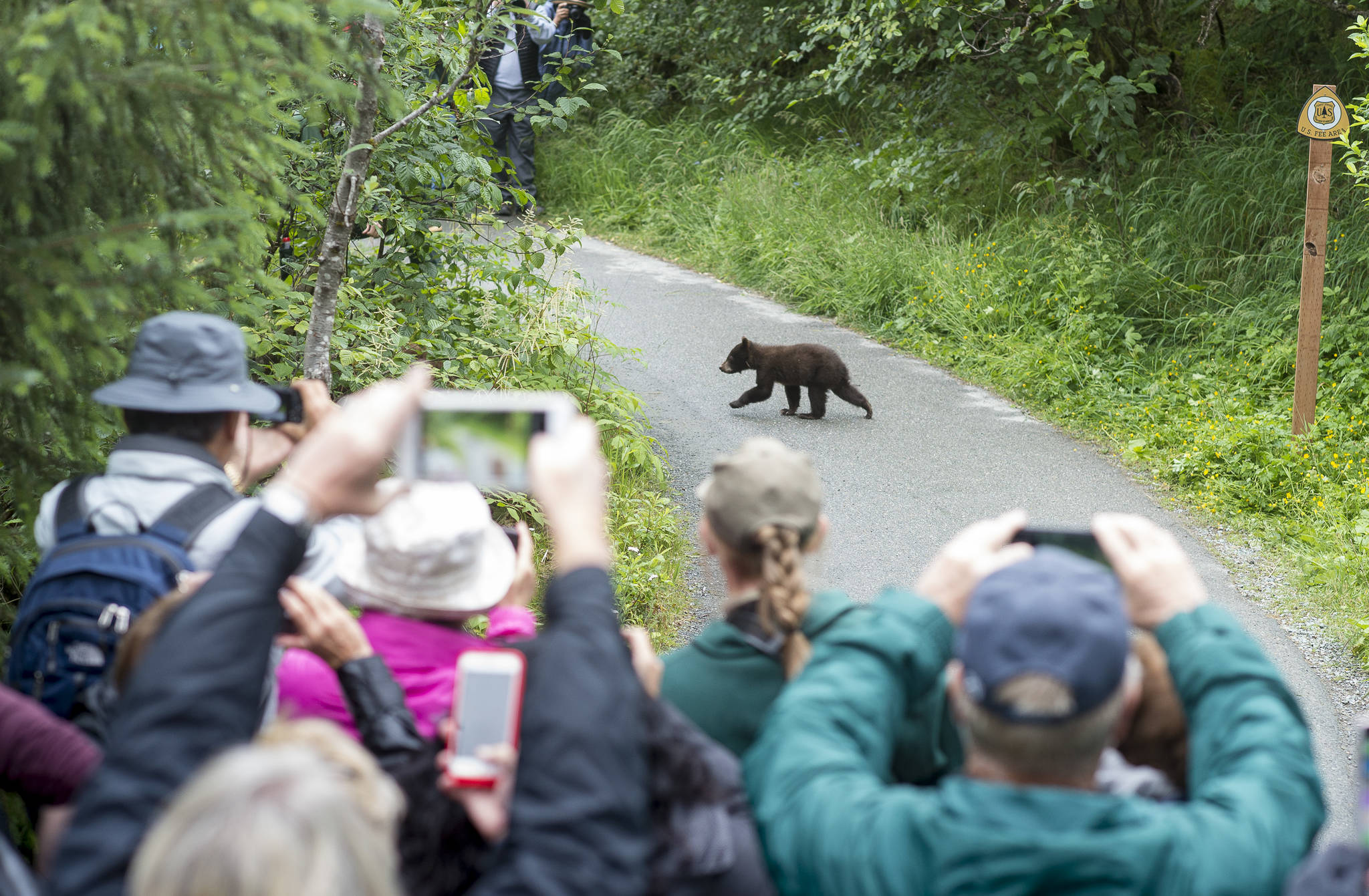Tourism provided both my kids with a great opportunity to earn those much-needed extra funds. Furthermore, I myself have been an employee of a local guiding company.
In observing the current discussion on tourism, I am reminded of two principles about natural resource management and community planning. These are principles that might aid the work of the mayor’s Visitor Industry Task Force. These are principles that I’ve studied and practiced in regards to timber, fisheries and community planning, and they recently came to mind when reading the tourism discussion in the Juneau Empire.
[Opinion: Tourism is a local’s business]
Principle One: While self-regulation is a good start, it will never be enough
With 1.2 million cruise ship visitors last summer, it was only a matter of time before the Tourism Best Management Practices, a voluntary program, would not be enough for Juneau’s situation. Like other resource-dependent industries, if the number of users is left unregulated, there will be a tipping point of imbalance. Think of open pastures with no limits of cows per farmer, and despite seeing harsh degradation in available grass, a farmer, out of self-interest, adds another cow. Once noticed, the next farmer adds a cow, and from then on, everything goes belly up. This time, instead of another cow, it’s a Panamax cruise ship. In ecological terms, this tipping point is called the “tragedy of the commons.”
The tragedy of the commons is a situation in a shared-resource system where individual users, acting independently, i.e. unregulated, behave contrary to the common good of all. In other words, it takes regulation to avoid hitting the tragedy of the commons.
For some parts of the tourism trade, could the tragedy of the commons be close by? What should be the maximum number of tourist buses allowed at the glacier? Could 50-plus whale watching boats be too many? Is it time to take the first step and impose a moratorium on licensing whale watching boats?
[‘What we used to have’: Locals testify about need to regulate tourism]
Principle Two: No place remains special by accident
To make and keep cohesive neighborhoods, it takes planning and zoning. To keep downtowns vibrant, communities need to be proactive in design and follow through with ordinances. To protect historical buildings and cultural landmarks, it takes establishing special districts. None of this happens by accident. If we don’t want all of downtown to look like South Franklin, the planning commission needs to act. For example, look at requiring year-round businesses in the Downtown Historic District.
In addition to these two principles, I have three observations.
The first observation comes directly from working as a naturalist guide in Juneau for two summers. I noticed there was a marked difference in lower stress and higher satisfaction levels among visitors on three-ship days compared to five-ship days. And this was before the Panamax ships arrived. Shouldn’t we care about maintaining visitor satisfaction as well? Do we want to remain a quality, nature-infused destination for our global visitors? If so, we must keep Juneau a special place for them as well as us.
My second observation is that some in the tourism industry want to make the question of managing tourism a question about whether or not tourism is good for Juneau. Local management of an industry should not equate to an attack on that industry. Rather, it should be viewed as the opposite. Management is a tool for keeping tourism strong and sustainable. Furthermore, management does not necessarily mean arduous regulation. There are ways to incentivize desired behavior, such as giving docking preference to those ships that plug in and/or commit to minimal air and water discharges while in port.
My third observation is that the task of managing growth at this advanced stage of a booming industry is complicated work. Despite admirable efforts by the Visitor Industry Task Force, it’s likely they will not get all their work done prior to the summer startup. As such, I encourage the task force to focus on a few solid steps now while setting the stage for further work.
Lastly, I suggest, applying city sales tax to tours sold onboard and using some of that revenue for keeping the work of the task force moving forward.
• Kate Troll, a longtime Alaskan, has over 22 years experience in coastal management, fisheries and energy policy and is a former executive director for United Fishermen of Alaska and the Alaska Conservation Voters. She’s been elected to local office twice, written two books and resides in Douglas. Columns, My Turns and Letters to the Editor represent the view of the author, not the view of the Juneau Empire.

